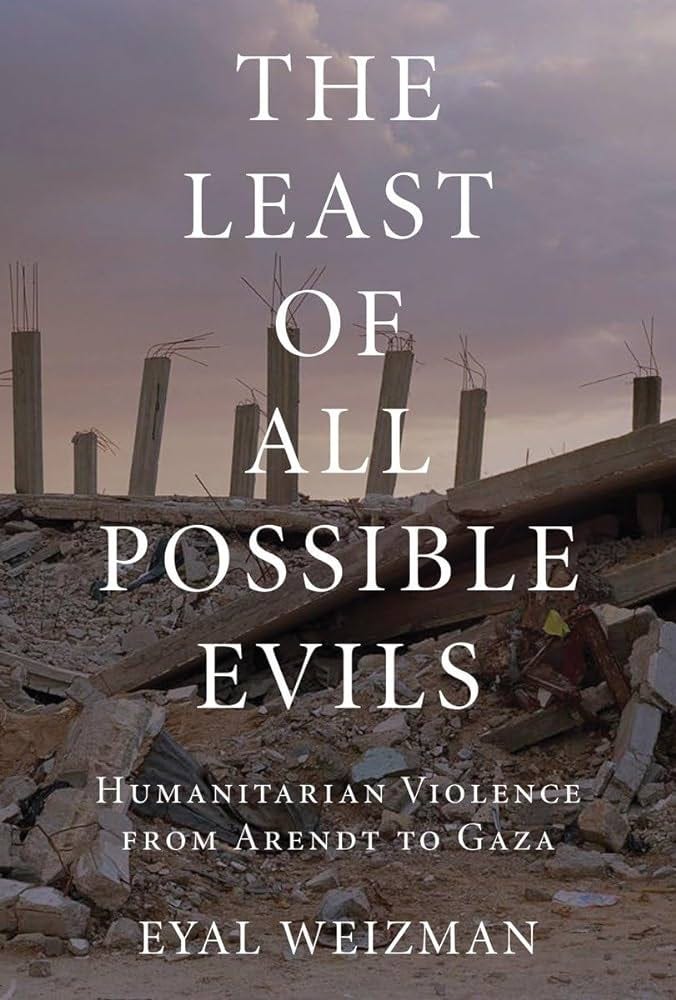January Book Club: The Least of All Possible Evils
The Least of All Possible Evils by Eyal Weizman discusses the humanitarian framing of the Israeli occupation and other wars, as well as a critique of the "lesser evil" concept.
Over the last 100 days, much of the criticism of the siege on Gaza has focused on Israel’s invasion as a ‘disproportionate’ response to the violence of October 7th. Where did this concept come from? Why is proportionality framing the opposition to Israel’s war in the first place? The invocation of proportionality, war crimes, and other international humanitarian law concepts is as ubiqutous as it is uncritical, redirecting anti-war energy into frames and tactics that cannot end imperialist wars.
Eyal Weizman helps us to understand that proportionality and other concepts of international humanitarian law are created to make imperialist wars more effective, not to end them. As Weizman aruges in the introduction, “International Humanitarian Law does not seek to end wars but rather to ‘regulate’ and ‘shape’ the way militaries wage them” (11).
Through an analysis of the emergence of international humanitarian law as a politcal project, followed by a focus on the spatial technologies and built environment in the management of “lesser evil” projects from Ethiopia to Kosovo to Bosnia to Gaza, Weizman’s analysis can help us determine what frameworks might be most useful for making a world After Empire possible.
Far from being exclusively about international humanitarianism, Weizman’s book also tackles the ethical concept of the “lesser evil” more broadly. As those of us in the United States enter an election year, the same tired scripts of positioning Biden as the so-called “lesser evil” candidate are winding up, making Weizman’s arguments all the more relevant.
Per usual, we’ll be discussing The Least of All Possible Evils on the After Empire podcast in the coming weeks. Until then, please feel free to contribute questions, comments, and provocations.

